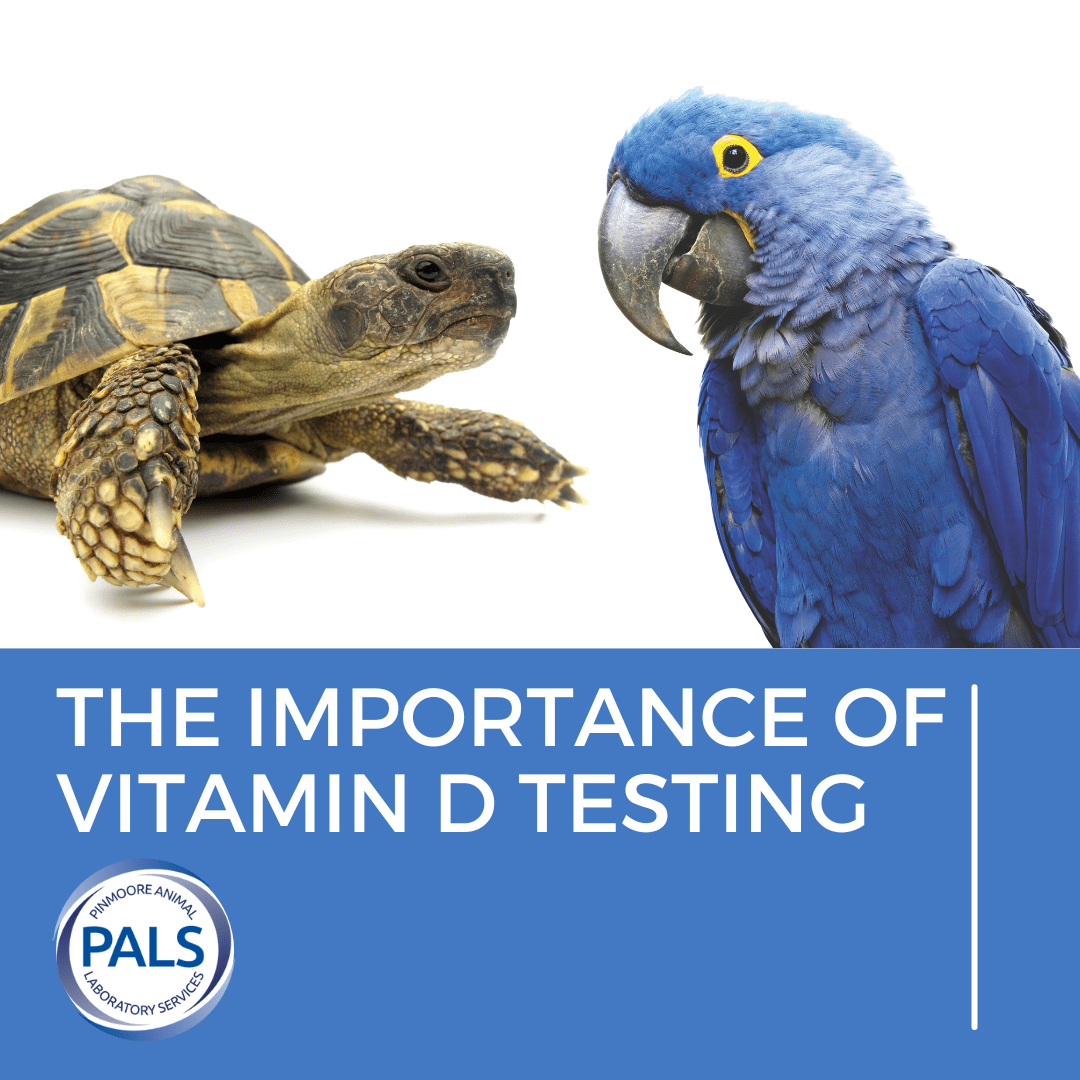Why is vitamin D important?
Vitamin D is essential for efficient calcium and phosphorus homeostasis, bone health and overall wellbeing in all animals. It is important for a healthy immune system and for the body to create appropriate inflammatory responses to trauma or infection.
Most animals will perform cutaneous vitamin D synthesis through sun exposure, however, some need artificial UVb light exposure e.g. captive reptiles and birds kept solely indoors, while others, e.g. dogs and cats, are reliant on sufficient dietary intake of this vitamin to meet their needs.
Vitamin D evaluation is important to ensure our patients are receiving the right amount to prevent possible chronic health problems. Including this test in a wellness screen or diagnostic work up can be beneficial to our patients long term health and wellbeing.
Signs of vitamin D deficiency
A deficiency in vitamin D will result in hypocalcaemia and hypophosphataemia, with subsequent poor bone mineralisation. This can lead to osteomalacia and rickets, with secondary pathological fractures , muscle weakness and pain associated with this condition in our small animal patients.
Nutritional secondary hyperparathyroidism is a condition observed in reptiles and birds when their diet contains inadequate calcium, excessive phosphorus and low vitamin D3 levels, or they have inadequate access to an appropriate UVb light source and are not kept at the correct temperatures. These animals are commonly weak, anorexic, unable to ambulate normally, have a soft/distorted jaw, pathological fractures, prolapses, difficulties laying eggs, tremors, and seizures, in extreme cases.
Why test for vitamin D
It is important to check and monitor blood levels of vitamin D, so that dietary and/or husbandry adjustments, or the addition or removal of dietary supplements, can be made accordingly.
Reduced levels can lead to poor bone formation primarily, with more severe disease seen if levels are markedly reduced over longer periods of time.
However, excessive vitamin D can also cause problems, with hypercalcaemia and renal failure seen in animals that are over supplemented. It can be found in some rodenticides and human medications, with testing an important tool if there has been accidental ingestion of these substances.
Benefits of vitamin D testing
Vitamin D testing allows us to assess and monitor blood levels in our patients. This is important to allow us to diagnose deficiencies or toxicities and monitor the response to treatment.
Dietary deficiencies can lead to irreversible bone changes that can affect overall quality of life for the animals affected, leading, in some cases, to chronic pain due to skeletal malformations that can arise. Toxicities can be life threatening, potentially leading to chronic renal failure, and require immediate veterinary attention. Monitoring these patients’ vitamin D levels is vitally important to adjust the diet or supplements given, and to maintain and improve our patients’ health and longevity.

